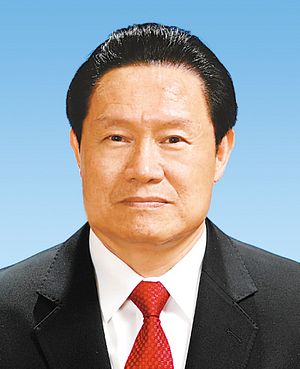Zhou Yongkang, the first Politburo Standing Committee member to be indicted for corruption in the history of the People’s Republic of China, was tried on May 22 behind closed doors, and his verdict was announced on June 11. Compared to the trial of Bo Xilai, former Politburo member and former party secretary of Chongqing, the trial of Zhou was much more mysterious.
In spite of public assurances of an open and transparent trial by Supreme People’s Court officials, including SPC President Zhou Qiang, the No. 1 Intermediate People’s Court of Tianjin decided that Zhou’s case would be tried in secret because his case involves state secrets. According to Xinhua’s report, the alleged offense was simply that he passed on six classified documents (five categorized as “top secret” and one “secret”) to Cao Yongzheng, a qinggong-master-cum-business entrepreneur who claims to have strong capacities in extrasensory perception (ESP). The offense, the court assessed, was very serious but without particularly serious consequences. Zhou was sentenced for four years in jail for his crime of “intentional disclosure of state secrets.” Apparently, this was a petty crime, on the scale of larceny — but still enough to justify as secret trial despite earlier SPC promises.
According to the public releases, Zhou’s trial didn’t touch on his “non-organizational political activities.” Though not exactly a legal term, this offense, referencing political activities outside the aegis of the Party leadership, is probably the most important reason why Zhou was expelled from the Party and placed under criminal investigation. Nevertheless, in China “non-organizational political activities” are not criminal offenses and Zhou was not convicted for those actions.
Instead, Zhou was sentenced to seven years in jail because of his “abuse of power.” According to the report, Zhou asked Jiang Jiemin (former general manager and chairman of the Chinese National Petroleum Corporation or CNPC) and Li Chuncheng (former deputy party secretary of Sichuan) to provide assistance to Zhou Bin (Zhou’s son), Zhou Feng (Zhou’s nephew), Zhou Yuanqing (Zhou’s brother), He Yan (a business woman in Sichuan), and Cao Yongzheng in their business operations. According to media reports of the trial, Zhou’s relatives and friends gained “illicit” profits amounting to 2.1 billion yuan ($338 million), causing economic losses of 1.5 billion yuan ($241 million). It could be true that the people named in the case profited because of Zhou’s connection. But it is not clear how the court proved that these were illicit profits causing economic losses to the state.
Finally, Zhou was sentenced to life imprisonment for taking a huge amount of bribes. According to the report, Zhou personally only took bribes of less than one million yuan, accepting a bribe of 731,100 yuan (about $117,000) from Jiang Jiemin. But Zhou’s wife (Jia Xiaoye) and son (Zhou Bin) took bribes of 129 million yuan ($20 million) on his behalf.
Apparently, the Chinese leadership under Xi Jinping is determined to fight corruption and establish the rule of law in China. Should Zhou have been publicly tried, at least for the charges relating to abuse of power and bribery, there would be more confidence in China’s future development as a country with the rule of law.































